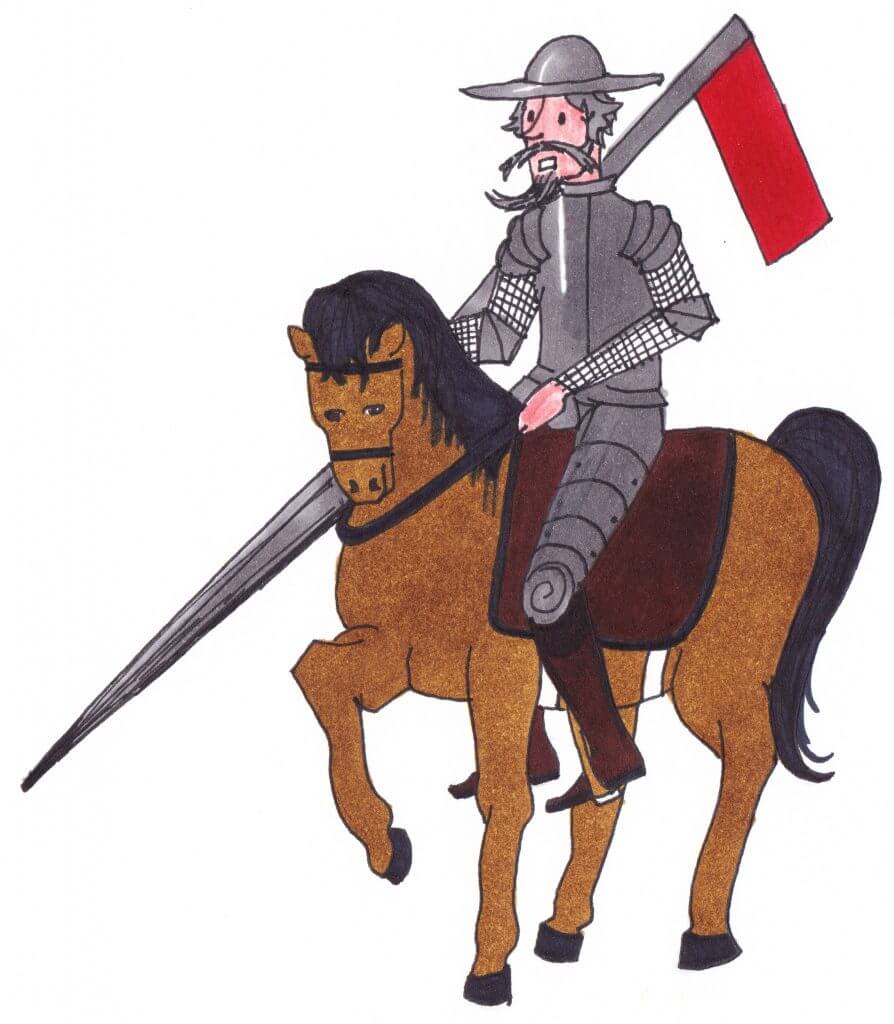Novels in Translation: Don Quixote
Don Quixote is widely regarded as one of the greatest novels ever written, and a huge influence on modern fiction. The Ingenious Nobleman Mister Quixote of La Mancha (El Ingenioso Hidalgo Don Quijote de la Mancha), to give the book it’s full title, was written in Spanish by Miguel de Cervantes. It was first published as two parts in 1605 and 1615, and has influenced numerous authors and novels in the centuries since it was written. It is widely considered to be the first modern novel. It has also been translated into over 50 languages, cementing its worldwide popularity.

The Story
The story focuses on Alonso Quixano, a Spanish ‘hidalgo’, or nobleman, residing in La Mancha. He is an avid reader of chivalrous romance novels, reading so many that he loses his mind. Quixano begins to believe that the fiction within the novels is true. He decides to become like the chivalrous characters in his books. He renames himself Don Quixote and wears an old suit of armour. He goes to an inn and views it as a castle, and himself as a heroic knight. His warped, imaginary realist causes him to be attached by people he inadvertently angers throughout the novel. His collections of novels is burned by a local priest, his niece and his housekeeper as he sleeps. However he continues to view the world through the eyes of a chivalrous knight. He enlists the help of the more practical Sancho Panza, a poor neighbouring farmer. Together, they go through numerous adventures. One such as when Don Quixote attaches large windmills, thinking them to be ferocious giants.
Part 2 of Don Quixote
The second part of the novel was published ten years after the first, and was revolutionary because the characters who Don Quixote meets during the first book are considered to have read it, and are thus aware of his adventures. Because of this, some characters attempt to deceive him. One such is a Duke and Duchess who test his devotion to his unseen and imaginary love interest, Dulcinea, for their own amusement.
Eventually Don Quixote returns to his home village, whee he attempts to become a rural shepherd, but is prevented from doing so by his housekeeper. He becomes very ill, and when he finally recovers, his sanity has been restored. He apologises for the damage he has caused and reverts to his original name of Quixano, despite Sancho’s attempts at restoring his belief in chivalry. Before he dies, he write in his will that his niece will be disinherited if she marries a man with a keen interest in chivalrous fiction.
Influences
Don Quixote has had numerous influences on authors of many nationalities. It is written in a dialect much closer to modern Spanish than the dialect spoken in the early 1600’s, so most Spaniards today can read it without much difficulty. There have been many different translations into English. From the earliest in 1612 by Thomas Shelton, to Edith Grossman’s 2003 version. Direct references to the novel can also be found in famous works such as The Three Musketeers by Alexandre Dumas, and Mark Twain’s Adventures of Huckleberry Finn.
The influence of Don Quixote cannot be exaggerated. It is widely considered one of the best novels of all time, and the greatest work in the Spanish language. At the time it was written, it was extremely forward-thinking, introducing new ideas and even, it could be argued, a new type of novel. It was also seen as one of the founding pillars of modern literature. This shows why Don Quixote is a revolutionary and very important novel, rightly being translated into a huge number of languages so it can appeal to an increased number of potential readers.















